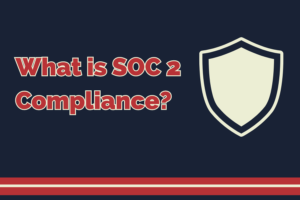Tips To Protect Yourself From Social Security Scams

In October 2018, the Social Security Administration (SSA) warned about fraudulent callers claiming to be from the Office of the Inspector General (OIG) and other government agencies. These callers will typically tell you that your Social Security Number (SSN) is at risk of being deactivated or deleted.
Following the SSA warning, the OIG advised members of the public against providing any personal information, including SSN and bank account details, to unknown people over the phone or email unless you’re sure the person asking is genuine.
Such scams targeting your SSN are on the rise, and here are some tips to help you avoid them.
#1. When in doubt, hang up.
If you suspect the call is fraudulent, hang up and call back using the official number of the agency in question. However, avoid using the caller ID number on your phone as they can be spoofed.
You should not engage with scammers or fraudsters on the phone, even if you think you can outsmart them. Simply hang up.
#2. Never Provide Personal Information to an Unknown Caller
Be wary of any suspicious callers asking for your personal information. Don’t provide the information, whether they’re gentle and persuasive or aggressive. Your data will probably be used in fraudulent activities that will cause you untold financial harm.
Related : 15 Online Free Tools to Scan Website Security Vulnerabilities & Malware
#3. Check Your Credit Report Annually
It’s usually difficult to tell if your Social Security number has been compromised. Nonetheless, you can easily identify any suspicious activities on your free annual credit report from the three major credit reporting agencies.
If someone has checked out your credit status using your SSN and without your authorization, you’ll be able to see that on the credit report. Also, you can see if anyone has opened new lines of credit in your name.
Note that each of the three leading credit reporting companies, Experian, Transunion, and Equifax are obligated to give you a free credit report every year. If you discover your SSN has been compromised, you can request a new one with the help of US Filing Services LLC.
#4. Report Suspicious Calls To The SSA
Whenever you receive a fraudulent call, you should report the number to the SSA. Calls from scammers claiming to be from the SSA and other government agencies are so rife the SSA has a Fraud Hotline.
You can reach the SSA at 1-800-269-0271. Hearing-impaired individuals can use 1-866-501-2101 (TTY). When you report an attempted fraud, you’re not only helping yourself but also assisting the SSA in advising the public on both the frequency and the nature of these potential scams.
#5. Capitalize on Free Monitoring Services
Millions of people fall victim to social security scams every year. In response, affected companies have started offering their clients free credit monitoring and fraud detection. It’s important to sign up for those services and use them as they’ll protect you from identity theft and the damages associated with it.
Conclusion
Your social security number is an essential key to identity thieves. It can give them access to critical aspects of your life. It’s important to be vigilant and implement measures to protect yourself from social security scams.






